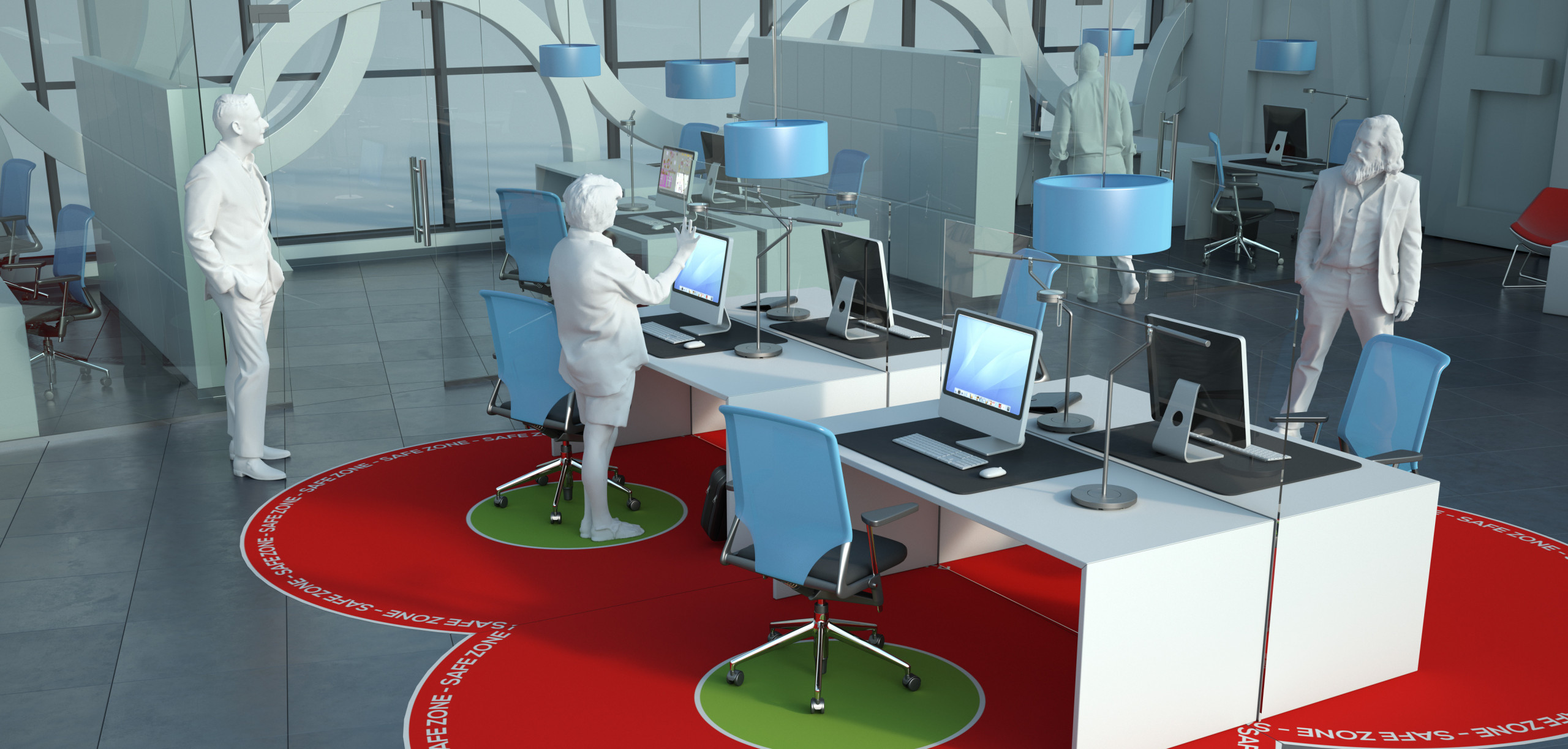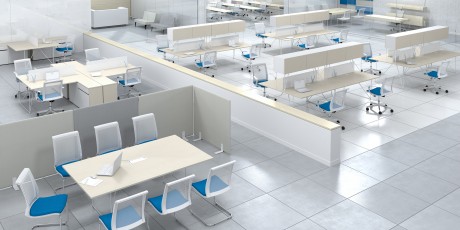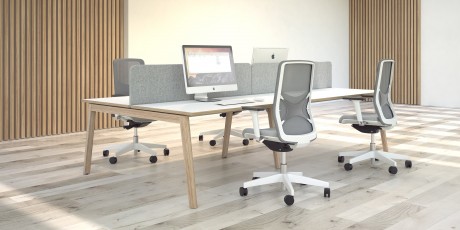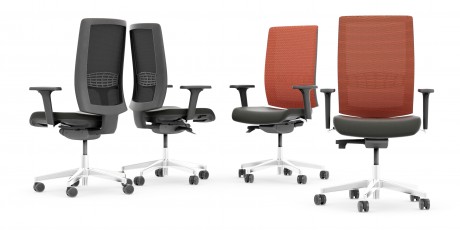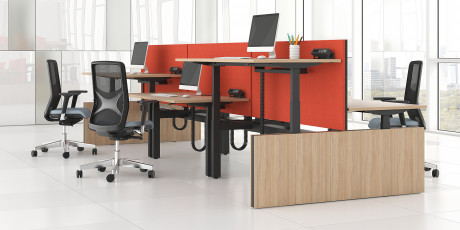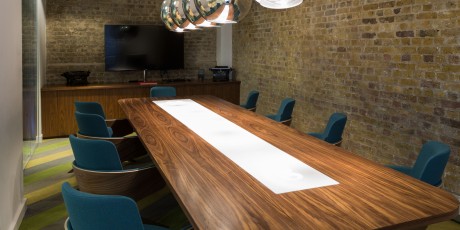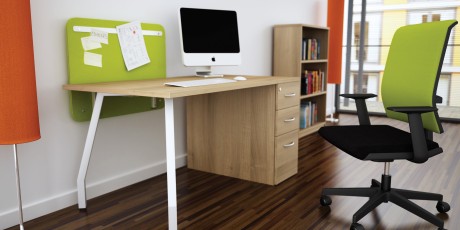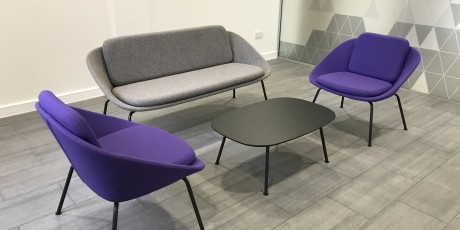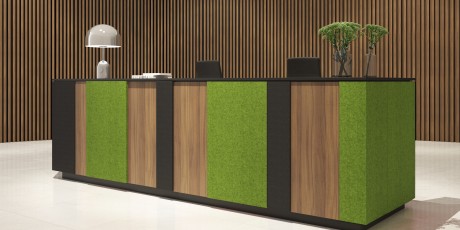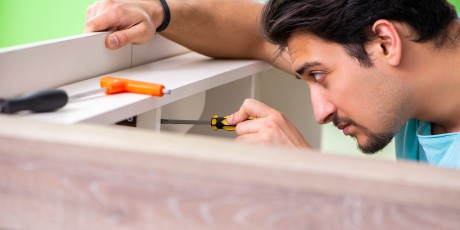Making your premises Covid-compliant
During the last 12 months, thousands of businesses across the UK have become accustomed to working remotely without the central hub of an office, but with restrictions easing, it’s now time to plan for the return to normal. Or rather, the New Normal. Microsoft Teams and Zoom have provided an adequate alternative to working together in the office, and many businesses now believe that homeworking is the way forward, but for the thousands that don’t, creating a workable, Covid-compliant configuration for their staff is becoming a priority.
There’s no doubt that working from home has the potential to be a game changer. More flexibility, a healthy work:life balance and no more commuting are all appealing concepts, but in reality there are many sectors where remote working simply isn’t an option. And for businesses in these sectors, it’s now time to be planning the return and designing the office space for the New Normal.
But what will the office actually look like post-Covid? It’s likely that some of the bells and whistles may be sacrificed in favour of more functional, practical layouts. The prediction is that a Covid-safe office, for example, may only accommodate 40% of the desks that were included pre-pandemic. This will necessitate careful planning and clever design, especially when it comes to the configuration of the desks, the movement of employees around the office, the ventilation required and the viral screens that may be necessary.
One thing is for certain: hygiene will be key. Sanitisers will be prominent at entrances and exit points, with key messages regarding hand washing, social distancing and the cleaning of surfaces constantly reinforced using wall and floor signage. Offices, warehouses and factories which have higher footfall may also introduce technology to check body temperature prior to entry or commencement of shifts. That age-old routine of the weekly office clean will be a thing of the past as disinfecting workstations will be a daily task, and deep cleans will have to be carried out more regularly. The decision to open or close shared spaces such as communal kitchens will need to be taken with the practicality of extra hygiene in mind, with deep cleans and fogging becoming the norm.
The Trades Union Congress recently reported that as many as 39% of workers were worried that they may not be able to socially distance adequately when they return to work. All businesses will be weighing up the cost of redesigning their commercial space, probably for a reduced headcount, but with the right advice there are ways of achieving a great outcome without a huge investment. Lower-cost solutions such as desktop viral screens and sneeze screens are affordable and can have a big impact, especially as they can also serve as a permanent reminder of the need for social distancing. As well as installing viral screens within the office environment, it’s advisable to explore how they can also make a large reception area safer for staff and visitors alike.
Innovations such as creating a contactless office also have genuine merit. Whether it’s a door handle, a toilet flush, a light switch or a lift button, we all touch things all the time without giving it a second’s thought, so offering a touchless alternative via a mobile app is well worth considering. Automatic doors, touch-free toilet flushes and motion-operated sanitiser dispensers are becoming ever more commonplace in the working environment.
Creating space will inevitably lead to a reduction in the numbers of people who are in the office at any one time, yet there will be a requirement for improved airflow and ventilation. Meeting in a socially distanced fashion outdoors is one way of retaining the feeling of teamworking and collective decision-making, but effectively circulating air around the workplace is a pressing issue to resolve.
As Lee Alexander, owner of Alexander Green Interiors, points out, the New Normal will be just that. ‘Here at Alexander Green we’re working with our clients to ensure that their premises are Covid-compliant for the return of their staff,’ says Lee. ‘This is involving rethinking their spaces, reducing the numbers of desks, designing and installing desktop viral screens and supplying a range of sanitiser stations and signage. We believe that the effects of Covid on office design will be felt for years to come. In fact, they will most likely have an impact on the way workplaces are future-proofed as we will see new technology emerge to reduce touchpoints and a far more flexible approach to shift patterns and working practices. Even smaller details such as the materials that are used for office furniture will need to be considered, with wipe-clean surfaces such as stone and laminate potentially replacing wood to limit the spread of bacteria and viruses.
‘We’re very passionate about helping businesses return to work in a manner that limits risk for their employees, and as a result we’re offering a Covid safety survey which enables us to review the current setup and make recommendations as to how to achieve compliance. From the review we can move on to designing the new space and supplying and installing the relevant office furniture and desktop viral screens, as well as offering a comprehensive deep clean and fogging service.’
Alexander Green design, supply and install office furniture, office seating and viral screens in Cambridge and across the UK, so please contact us for no obligation expert advice and support to discuss how we can help you achieve Covid-19 compliance for your safe return to the office.
